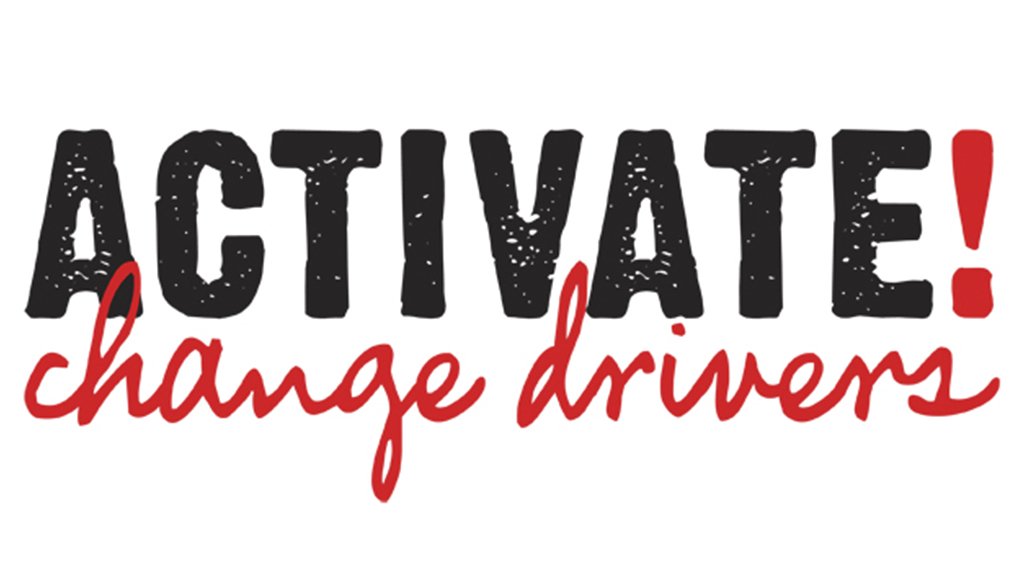It is worth looking again at the many peaceful forms of protest action available to citizens, says Ashley Roman, Programme Research and Partnership Manager, ACTIVATE! Change Drivers, after South Africa was gripped by violent unrest recently. Whatever the cause of dissent, there are various ways to make one’s voice heard, other than causing more damage to an already fragile socio-economic situation.
“While understanding that there are real and devastating social challenges in South Africa, and underlining the frustration felt by many people in not being able to express the frustration and tension that they are experiencing individually, there are protest alternatives to riots,” Roman emphasises. “There are legitimate reasons why people protest. It releases real tensions and frustrations. The breakdown happens when people try find alternative ways to protest, but meetings don’t happen with their local councillors or there is corruption, and they feel their grievances are not heard. So, people protest for redress because local systems are not working, and they are not aware of any alternatives.”
At Activate Change Drivers, which has a youth network of 4 500 young social activists nationwide, working in their communities for social change, the young leaders – or activators – as they are known, are taught the various methodologies of non-violent protest action. These range from the well-known ways of public speeches to letters of opposition or support; group or mass petitions; social boycotts; pickets; to lessor used ways such as mock awards or mock funerals; pranks; guerrilla theatre, protest art, dancing and flash mobs; turning one’s back; wearing of symbols; pray-ins and silence.
“We use these methodologies in our training setting to help create new thinking around non-violent strategies. We position it as organisational strategy and a component in our leaning setting to communicate these non-violent strategies to the youth and have conversations around new ideas in terms of our South African context and communities,” adds Roman.
The methodologies are taken from Gene Sharp’s well-researched book, The Politics of Nonviolent Action (1973), which was a gamechanger, detailing 198 methods of non-violent action. It also, of course, drew on history, where there are many examples of non-violent protest action for all types of protest – against Government, financial institutions, individuals, symbolic public acts, economic boycotts and political action.
In South Africa, during the #feesmustfall protests, students at the University of Cape Town, read protest poetry with drama elements in the UCT library to get their message across - as one of the ways to protest high tertiary education fees in 2016. In Liberia, women led by Nobel Prize winning poet Leymah Gbowee, protested the Second Liberian Civil War with various non-violent means, including sit-ins, singing, and even withholding sex from their menfolk until the war ended in 2003.
More recently, ‘taking the knee’ during the playing of the American national anthem, The Star-Spangled Banner, has become commonplace among athletes in particular, to protest against racial inequality and police brutality in the United States, something the #BlackLivesMatter movement has amplified in recent times worldwide. It was football player Colin Kaepernick who began his silent protest by taking a knee in September 2016.
Internationally, other peaceful protests that stand out are, The Singing Revolution (1986-1991), when Estonian citizens, occupied by the Soviet Union, began mass demonstrations in the streets of Estonia, using their voices to sing folk songs, reclaiming their culture long outlawed by the Soviet occupation. Many will have read about Martin Luther King Jr’s March on Washington in 1963 when
200 000 Americans marched to promote racial equality and justice. This is where King gave his famous ‘I have a dream’ speech.
Roman concludes: “There are different strategies for different scenarios to draw on as ways of getting the message across, without distraction, without loss of lives, or damage to property, and violence. We need to think about alternatives. We haven’t seen very many alternatives in South Africa if you look at our history.”
EMAIL THIS ARTICLE SAVE THIS ARTICLE ARTICLE ENQUIRY
To subscribe email subscriptions@creamermedia.co.za or click here
To advertise email advertising@creamermedia.co.za or click here











